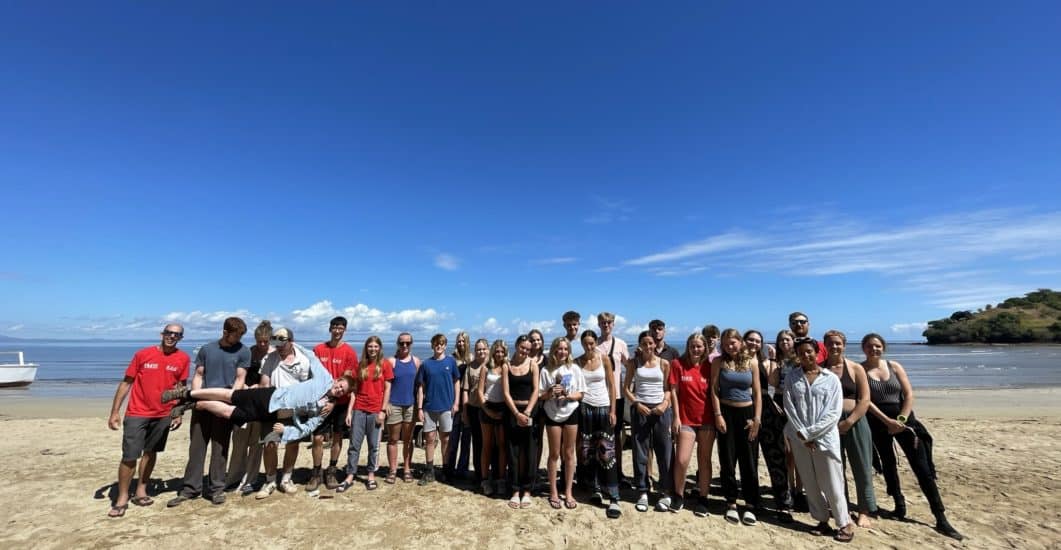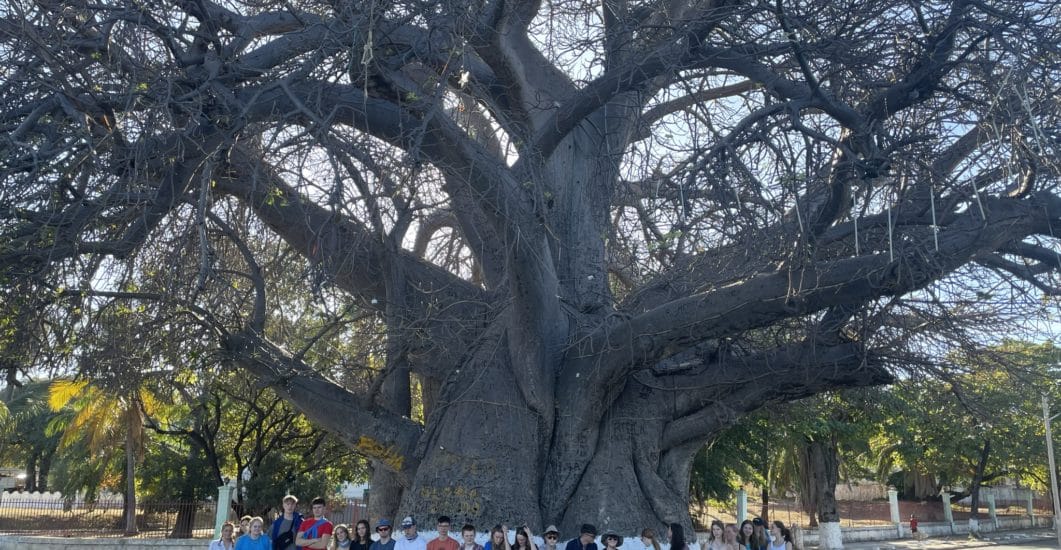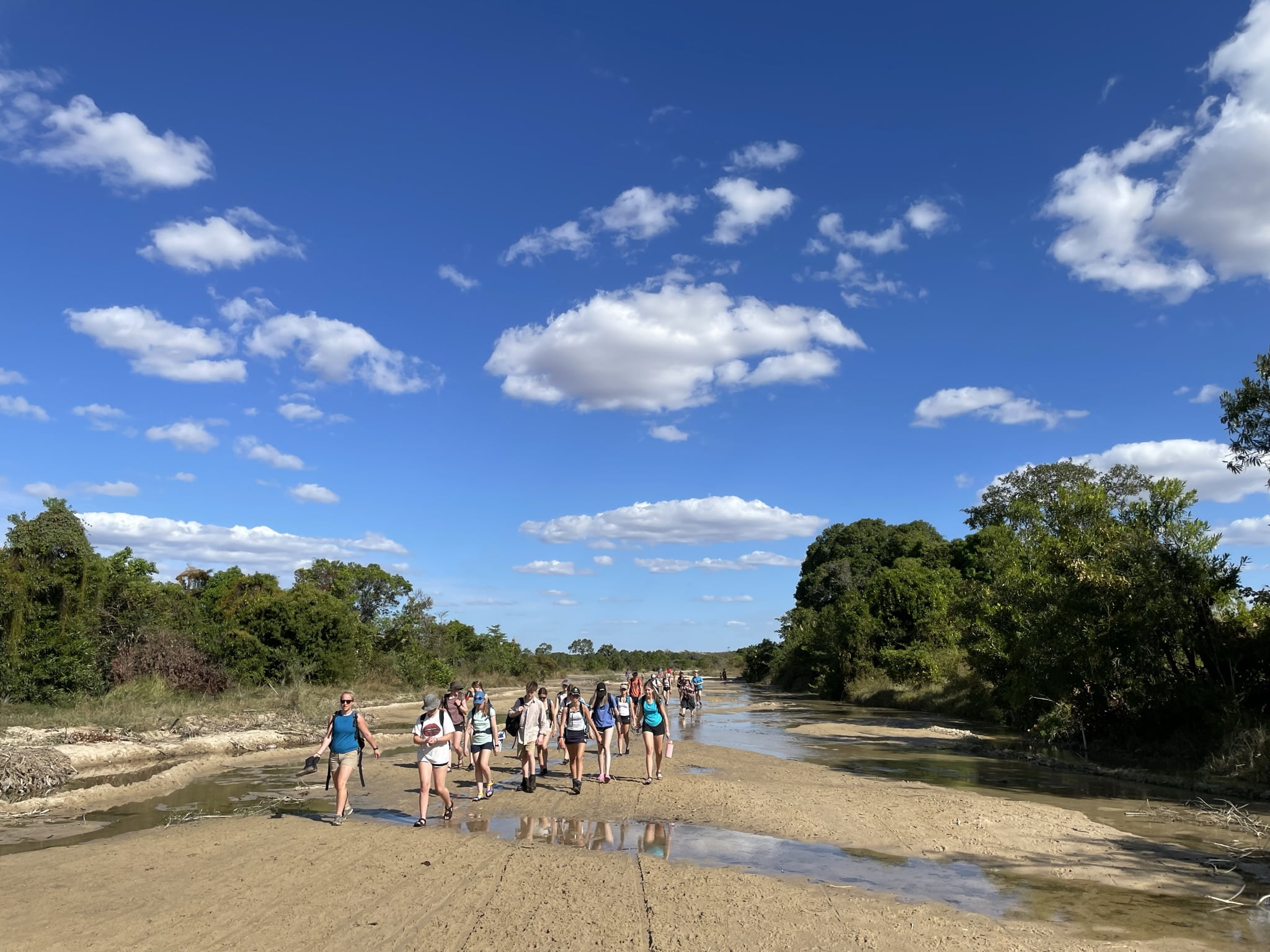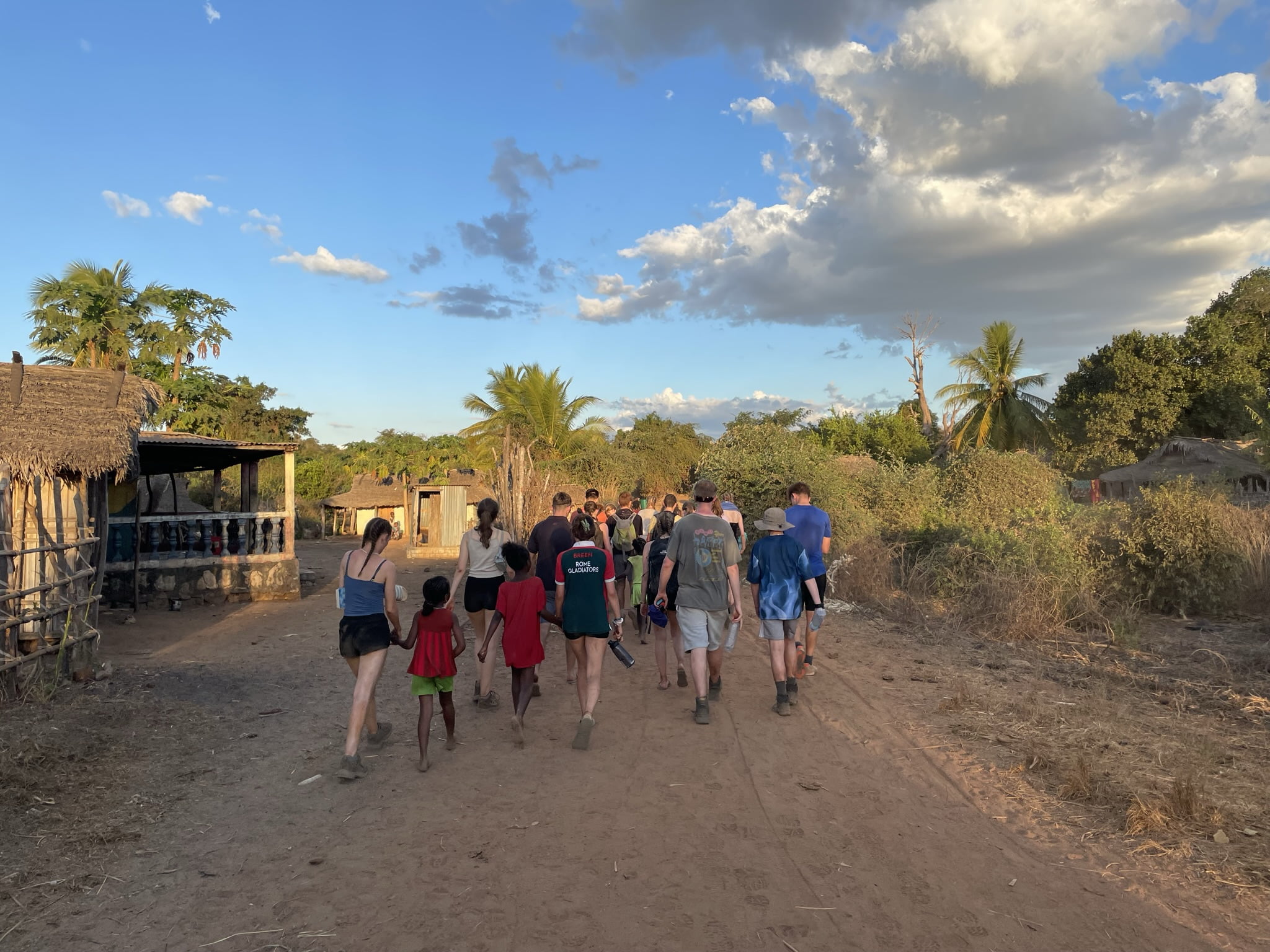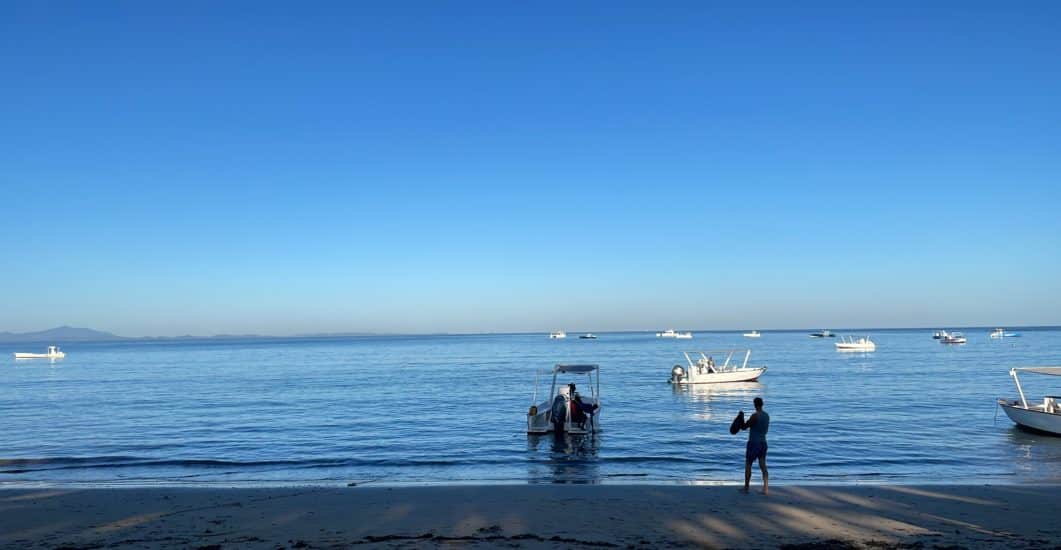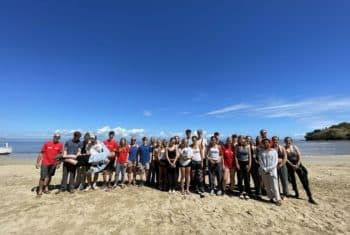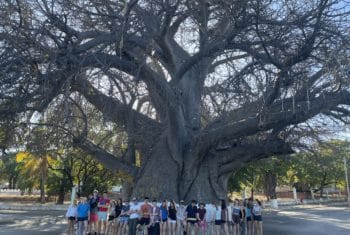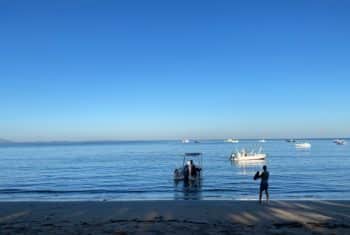Along with three staff members, Hurst pupils from Year 11, 12, and 13 headed out to Madagascar this summer to work on various biological research projects. Upon arriving in the dry forests of the northwest, the group immediately set off on a beautiful 3-hour hike to a satellite camp called Matsedroy. The camp is situated on the edge of a lake, where lemurs where relaxing in the trees, snakes made regular appearances, and scorpions had to be watched out for! For much of the first week, the pupils helped the Malagasy and international scientists to gather important scientific data, with the aim of building a picture of the forest biodiversity as well as continuing long-term studies. Pupils were kept very busy out on surveys along the various transects in the area, looking out for lemurs, chameleons, snakes, spiders, and birds! On top of this, the pupils also engaged with a lecture programme given by some of the area’s leading scientists, which focussed on the challenges faced by Madagascar’s biodiversity.
The excellent team at the camp also ensured that the pupils had the opportunity to experience the local culture and engage with Malagasy life. Highlights for the pupils included exploring the local weekly market, playing a football match against the local village team, and learning some of the Malagasy language with one of the local scientists. Pupils also enjoyed down time between surveys during which they ate in the communal dining hut, played cards, and relaxed in the camp.
Following another long overland transfer, the second week of the expedition brought a little more luxury and relaxation. The Hurst group arrived at Nosy Be; a beautiful island surrounded by palm trees, sandy beaches, and coral reefs. Tents were upgraded to comfortable dormitories, and there was even a small amount of Wi-F…but the biggest positive for the pupils was the presence of running showers and flushing toilets—no more bucket showers or long drops!
The marine week saw all the pupils getting involved with either scuba diving or snorkelling training, as well as a reef ecology course. Highlights included passing the SSI Open Water diving qualification, seeing beautiful coral reefs, multiple encounters with turtles, and even the occasional sightings of reef sharks! Between dives, pupils engaged in a marine ecology lecture series, whilst also taking some time to relax on the beach or enjoy the facilities of a neighbouring hotel. The week also included an evening where all pupils presented on a marine ecology topic of their choice; some were amazingly creative, especially the ‘Fresh Prince of Bel Air’ marine biology rap!
“ The end of the two weeks of expedition went all too quickly. It was brilliant to see the Hurst pupils making so many new friendships, as well as immerse themselves in conservation science from start to finish. The pupils learnt a huge amount about how the scientific community functions and received a huge amount of praise from the various camp leaders, scientists, and instructors for their excellent engagement and kindness to each other. Overall, a highly successful expedition that brought huge value to all the pupils that took part. ” Owain Jones, Head of Biology
